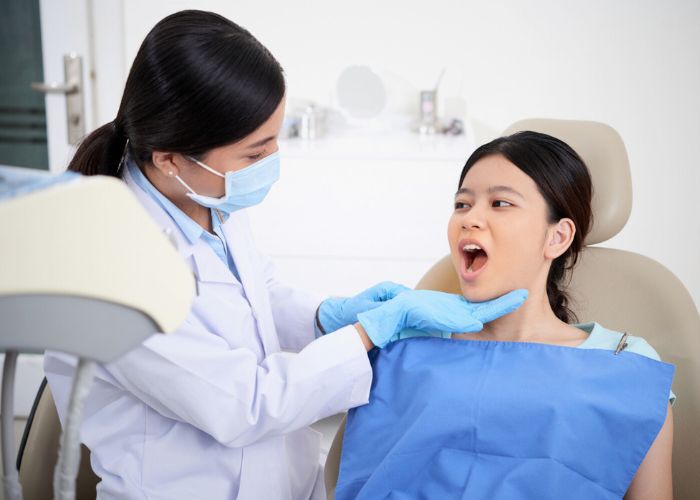The Importance of Regular Dental Check-ups

In the hustle and bustle of our daily lives, it's easy to overlook the importance of regular dental check-ups. For many, a visit to the dentist only occurs when there's a noticeable issue, such as pain or discomfort. However, maintaining optimal oral health goes beyond addressing problems as they arise; it involves a proactive approach that includes regular check-ups. In this blog post, we will delve into the various reasons why scheduling routine dental examinations is a vital aspect of overall healthcare.
1. Prevention is Better Than Cure
One of the primary reasons for regular dental check-ups is prevention. Dental issues often develop gradually, and early detection can make a significant difference in the outcome. During a routine examination, dentists can identify potential problems before they escalate into major concerns. This includes the detection of cavities, gum disease, and other oral health issues that may not be immediately apparent to the patient.
Regular cleanings during these check-ups also help in preventing the buildup of plaque and tartar. Even with diligent brushing and flossing at home, some areas of the mouth can be challenging to reach, leading to the accumulation of plaque. Professional cleanings can effectively remove these deposits, reducing the risk of cavities and gum disease.
2. Maintaining Good Oral Hygiene Habits
Beyond the professional cleaning aspect, regular dental check-ups serve as an opportunity for education. Dentists and dental hygienists can provide personalized advice on oral hygiene practices, including proper brushing and flossing techniques. They can recommend specific oral care products tailored to an individual's needs, such as toothbrushes, toothpaste, and mouthwash.
Furthermore, patients can ask questions and seek clarification on any concerns they may have about their oral health. This educational component empowers individuals to take an active role in maintaining their oral hygiene between dental visits.
3. Early Detection of Oral Cancer
Oral cancer is a serious and potentially life-threatening condition that can affect various parts of the mouth, including the lips, tongue, cheeks, and throat. The key to successfully treating oral cancer is early detection. During a routine dental check-up, dentists conduct a thorough examination of the oral tissues, looking for signs of abnormalities or suspicious lesions.
Early-stage oral cancer may not always present noticeable symptoms, making regular dental check-ups crucial for its timely detection. By identifying potential issues in their early stages, dentists can collaborate with patients to develop an appropriate treatment plan, significantly improving the chances of a successful outcome.
4. Preserving Natural Teeth
Preserving natural teeth is a shared goal for both individuals and dental professionals. Regular dental check-ups play a pivotal role in achieving this objective. Dentists can identify and address issues such as cavities and gum disease promptly, preventing them from advancing to a stage where tooth extraction becomes necessary.
Moreover, routine examinations allow dentists to monitor the condition of existing dental work, such as fillings, crowns, and bridges. Early detection of any problems with these restorations enables timely repairs or replacements, contributing to the longevity of the natural teeth they support.
5. Managing Gum Health
Gum health is a critical component of overall oral well-being. Gingivitis, an early stage of gum disease, is reversible with proper care and professional intervention. However, if left untreated, gingivitis can progress to periodontitis, a more severe form of gum disease that can lead to tooth loss.
During regular dental check-ups, dentists assess the health of the gums, checking for signs of inflammation, bleeding, and recession. They can provide guidance on effective oral hygiene practices and recommend appropriate treatments to address gum-related issues promptly.
6. Addressing Bad Habits
Many individuals have habits that can adversely impact their oral health, such as smoking, clenching or grinding teeth (bruxism), and nail-biting. Regular dental check-ups provide an opportunity for dentists to discuss these habits with patients and their potential consequences.
For example, smoking not only stains teeth but also increases the risk of gum disease and oral cancer. Bruxism can lead to worn-down teeth, jaw pain, and headaches. By addressing these habits early on, dentists can work with patients to develop strategies for minimizing their impact on oral health.
7. Monitoring Overall Health
The mouth is a window to overall health, and certain systemic conditions may manifest symptoms in the oral cavity. Diabetes, for instance, can affect gum health, and some nutritional deficiencies may manifest as changes in the tongue and oral tissues. Dentists are trained to recognize these signs during routine examinations, prompting further investigation or collaboration with other healthcare professionals.
Regular dental check-ups can thus contribute to the early identification of systemic health issues, enabling individuals to seek appropriate medical care promptly.
Conclusion
In conclusion, regular dental check-ups are a cornerstone of maintaining optimal oral health. Beyond addressing immediate concerns, these routine examinations play a crucial role in prevention, early detection, and education. By prioritizing regular dental visits, individuals can take proactive steps towards preserving their natural teeth, preventing serious oral health issues, and contributing to their overall well-being. Remember, a healthy smile is a reflection of a healthy you!
